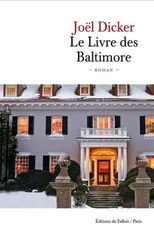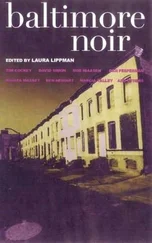Owen Wister - Lady Baltimore
Здесь есть возможность читать онлайн «Owen Wister - Lady Baltimore» весь текст электронной книги совершенно бесплатно (целиком полную версию без сокращений). В некоторых случаях можно слушать аудио, скачать через торрент в формате fb2 и присутствует краткое содержание. Жанр: Вестерн, на английском языке. Описание произведения, (предисловие) а так же отзывы посетителей доступны на портале библиотеки ЛибКат.
- Название:Lady Baltimore
- Автор:
- Жанр:
- Год:неизвестен
- ISBN:нет данных
- Рейтинг книги:5 / 5. Голосов: 1
-
Избранное:Добавить в избранное
- Отзывы:
-
Ваша оценка:
- 100
- 1
- 2
- 3
- 4
- 5
Lady Baltimore: краткое содержание, описание и аннотация
Предлагаем к чтению аннотацию, описание, краткое содержание или предисловие (зависит от того, что написал сам автор книги «Lady Baltimore»). Если вы не нашли необходимую информацию о книге — напишите в комментариях, мы постараемся отыскать её.
Lady Baltimore — читать онлайн бесплатно полную книгу (весь текст) целиком
Ниже представлен текст книги, разбитый по страницам. Система сохранения места последней прочитанной страницы, позволяет с удобством читать онлайн бесплатно книгу «Lady Baltimore», без необходимости каждый раз заново искать на чём Вы остановились. Поставьте закладку, и сможете в любой момент перейти на страницу, на которой закончили чтение.
Интервал:
Закладка:
At present our company consisted of Juno; a middle-class Englishman employed in some business capacity in town; a pair of very young honeymooners from the "up-country"; a Louisiana poetess, who wore the long, cylindrical ringlets of 1830, and who was attending a convention the Daughters of Dixie; two or three males and females, best described as et ceteras; and myself. "I shall only take a mouthful for the sake of nourishment," Juno was announcing, "and then I shall return to his bedside."
"Is he very suffering?" inquired the poetess, in melodious accent.
"It was an infamous onslaught," Juno replied.
The poetess threw up her eyes and crooned, "Noble, doughty champion!"
"You may say so indeed, madam," said Juno.
"Raw beefsteak's jolly good for your eye," observed the Briton.
This suggestion did not appear to be heard by Juno.
"I had a row with a chap," the Briton continued. He's my best friend now. He made me put raw beefsteak—"
"I thank you," interrupted Juno. "He requires no beefsteak, raw or cooked."
The face of the Briton reddened. "Too groggy to eat, is he?"
Mrs. Trevise tinkled her bell. "Daphne! I have said to you twice to hand those yams."
"I done handed 'em twice, ma'am."
"Hand them right away, Daphne, and don't be so forgetful." It was not easy to disturb the composure of Mrs. Trevise.
The poetess now took up the broken thread. "Had I a son," she declared, "I would sooner witness him starve than hear him take orders from a menial race."
"But mightn't starving be harder for him to experience than for you to witness, y' know?" asked the Briton.
At this one of the et ceteras made a sort of snuffing noise, and ate his dinner hard.
It was the male honeymooner who next spoke. "Must have been quite a tussle, ma'am."
"It was an infamous onslaught!" repeated Juno. "Wish I'd seen it!" sighed the honeymooner.
His bride smiled at him beamingly. "You'd have felt right lonesome to be out of it, David."
"No apology has yet been offered," continued Juno.
"But must your nephew apologize besides taking a licking?" inquired the Briton.
Juno turned an awful face upon hint. "It is from his brutal assailant that apologies are due. Mr. Mayrant's family" (she paused here for blighting emphasis) "are well-bred people, and he will be coerced into behaving like a gentleman for once."
I checked an impulse here to speak out and express my doubts as to the family coercion being founded upon any dissatisfaction with John's conduct.
"I wonder if reading or recitation might not soothe your nephew?" said the poetess, now.
"I should doubt it," answered Juno. "I have just come from his bedside."
"I should so like to soothe him, if I could," the poetess murmured. "If he were well enough to hear my convention ode—"
"He is not nearly well enough," said Juno.
The et cetera here coughed and blew his nose so remarkably that we all started.
A short silence followed, which Juno relieved.
"I will give the young ruffian's family the credit they deserve," she stated. "The whole connection despises his keeping the position."
Another et cetera now came into it. "Is it known what exactly precipitated the occurrence?"
Juno turned to him. "My nephew is a gentleman from whose lips no unworthy word could ever fall.'
"Oh!" said the et cetera, mildly. "He said something, then?"
"He conveyed a well-merited rebuke in fitting terms."
"What were the terms?" inquired the Briton.
Juno again did not hear him. "It was after a friendly game of cards. My nephew protested against any gentleman remaining at the custom house since the recent insulting appointment."
I was now almost the only member of the party who had preserved strict silence throughout this very interesting conversation, because, having no wish to converse with Juno at any time, I especially did not desire it now, just after her seeing me (I thought she must have seen me) in amicable conference with the object of her formidable displeasure.
"Every Mayrant is ferocious that I ever heard of," she continued. "You cannot trust that seemingly delicate and human exterior. His father had it, too — deceiving exterior and raging interior, though I will say for that one that he would never have stooped to humiliate the family name as his son is doing. His regiment was near by when the Northern vandals burned our courthouse, and he made them run, I can tell you! It's a mercy for that poor girl that the scales have dropped from her eyes and she has broken her engagement with him."
"With the father?" asked a third et cetera.
Juno stared at the intruder.
Mrs. Trevise drawled a calm contribution. "The father died before this boy was born."
"Oh, I see!" murmured the et cetera, gratefully.
Juno proceeded. "No woman's life would be safe with him."
"But mightn't he be safer for a person's niece than for their nephew?" said the Briton.
Mrs. Trevise's hand moved toward the bell.
But Juno answered the question mournfully: "With such hereditary bloodthirstiness, who can tell?" And so Mrs. Trevise moved her hand away again.
"Excuse me, but do you know if the other gentleman is laid up, too?" inquired the male honeymooner, hopefully.
"I am happy to understand that he is," replied Juno.
In sheer amazement I burst out, "Oh!" and abruptly stopped.
But it was too late. I had instantly become the centre of interest. The et ceteras and honeymooners craned their necks; the Briton leaned toward me from opposite; the poetess, who had worn an absent expression since being told that the injured champion was not nearly well enough to listen to her ode, now put on her glasses and gazed at me kindly; while Juno reared her headdress and spoke, not to me, but to the air in my general neighborhood.
"Has any one later intelligence than what I bring from my nephew's bedside?"
So she hadn't perceived who my companion at the step had been! Well, she should be enlightened, they all should be enlightened, and vengeance was mine. I spoke with gentleness —
"Your nephew's impressions, I fear, are still confused by his deplorable misadventure."
"May I ask what you know about his impressions?"
Out of the corner of my eye I saw the hand of Mrs. Trevise move toward her bell; but she wished to hear all about it more than she wished concord at her harmonious table; and the hand stopped.
Juno spoke again. "Who, pray, has later news than what I bring?"
My enemy was in my hand; and an enemy in the hand is worth I don't know how many in the bush.
I answered most gently: "I do not come from Mr. Mayrant's bedside, because I have just left him at the front door in sound health — saving a bruise over his left eye."
During a second we all sat in a high-strung silence, and then Juno became truly superb. "Who sees the scars he brazenly conceals?"
It took away my breath; my battle would have been lost, when the Briton suggested: "But mayn't he have shown those to his Aunt?"
We sat in no silence now; the first et cetera made extraordinary sounds on his plate, Mrs. Trevise tinkled her handbell with more unction than I had ever yet seen in her; and while she and Daphne interchanged streams of severe words which I was too disconcerted to follow, the other et ceteras and the honeymooners hectically effervesced into small talk. I presently found myself eating our last course amid a reestablished calm, when, with a rustle, Juno swept out from among us, to return (I suppose) to the bedside. As she passed behind the Briton's chair, that invaluable person kicked me under the table, and on my raising my eyes to him he gave me a large, robust wink.
X: High Walk and the Ladies
I now burned to put many questions to the rest of the company. If, through my foolish and outreaching slyness with the girl behind the counter, the door of my comprehension had been shut, Juno had now opened it sufficiently wide for a number of facts to come crowding in, so to speak, abreast. Indeed, their simultaneous arrival was not a little confusing, as if several visitors had burst in upon me and at once begun speaking loudly, each shouting a separate and important matter which demanded my intelligent consideration. John Mayrant worked in the custom house, and Kings Port frowned upon this; not merely Kings Port in general — which counted little with the boy, if indeed he noticed general opinion at all — but the boy's particular Kings Port, his severe old aunts, and his cousins, and the pretty girl at the Exchange, and the men he played cards with, all these frowned upon it, too; yet even this condemnation one could disregard if some lofty personal principle, some pledge to one's own sacred honor, were at stake — but here was no such thing: John Mayrant hated the position himself. The salary? No, the salary would count for nothing in the face of such a prejudice as I had seen glitter from his eye! A strong, clever youth of twenty-three, with the world before him, and no one to support — stop! Hortense Rieppe! There was the lofty personal principle, the sacred pledge to honor; he was engaged presently to endow her with all his worldly goods; and to perform this faithfully a bridegroom must not, no matter how little he liked "taking orders from a negro," fling away his worldly goods some few days before he was to pronounce his bridegroom's vow. So here, at Mrs. Trevise's dinner-table, I caught for one moment, to the full, a vision of the unhappy boy's plight; he was sticking to a task which he loathed that he might support a wife whom he no longer desired. Such, as he saw it, was his duty; and nobody, not even a soul of his kin or his kind, gave him a word or a thought of understanding, gave him anything except the cold shoulder. Yes; from one soul he had got a sign — from aged Daddy Ben, at the churchyard gate; and amid my jostling surmises and conclusions, that quaint speech of the old negro, that little act of fidelity and affection from the heart of a black man, took on a strange pathos in its isolation amid the general harshness of his white superiors. Over this it was that I was pausing when, all in a second, perplexity again ruled my meditations. Juno had said that the engagement was broken. Well, if that were the case — But was it likely to be the case? Juno's agreeable habit, a habit grown familiar to all of us in the house, was to sprinkle about, along with her vitriol, liberal quantities of the by-product of inaccuracy. Mingled with her latest illustrations, she had poured out for us one good dose of falsehood, the antidote for which it had been my happy office to administer on the spot. If John Mayrant wasn't in bed from the wounds of combat, as she had given us to suppose, perhaps Hortense Rieppe hadn't released him from his plighted troth, as Juno had also announced; and distinct relief filled me when I reasoned this out. I leave others to reason out why it was relief, and why a dull disappointment had come over me at the news that the match was off. This, for me, should have been good news, when you consider that I had been so lately telling myself such a marriage must not be, that I must myself, somehow (since no one else would), step in and arrest the calamity; and it seems odd that I should have felt this blankness and regret upon learning that the parties had happily settled it for themselves, and hence my difficult and delicate assistance was never to be needed by them.
Читать дальшеИнтервал:
Закладка:
Похожие книги на «Lady Baltimore»
Представляем Вашему вниманию похожие книги на «Lady Baltimore» списком для выбора. Мы отобрали схожую по названию и смыслу литературу в надежде предоставить читателям больше вариантов отыскать новые, интересные, ещё непрочитанные произведения.
Обсуждение, отзывы о книге «Lady Baltimore» и просто собственные мнения читателей. Оставьте ваши комментарии, напишите, что Вы думаете о произведении, его смысле или главных героях. Укажите что конкретно понравилось, а что нет, и почему Вы так считаете.










